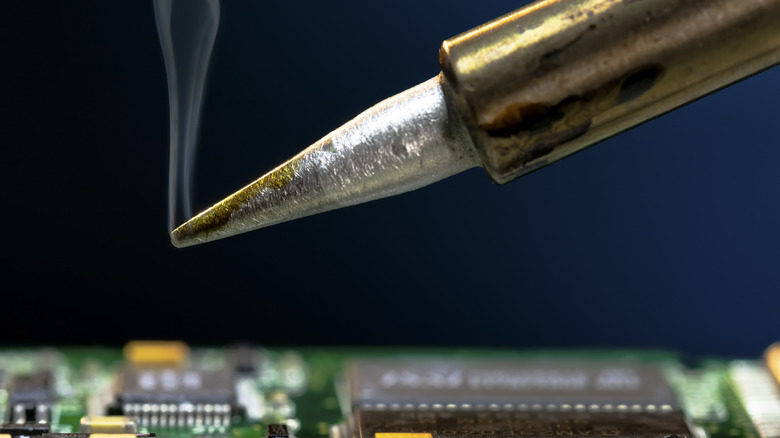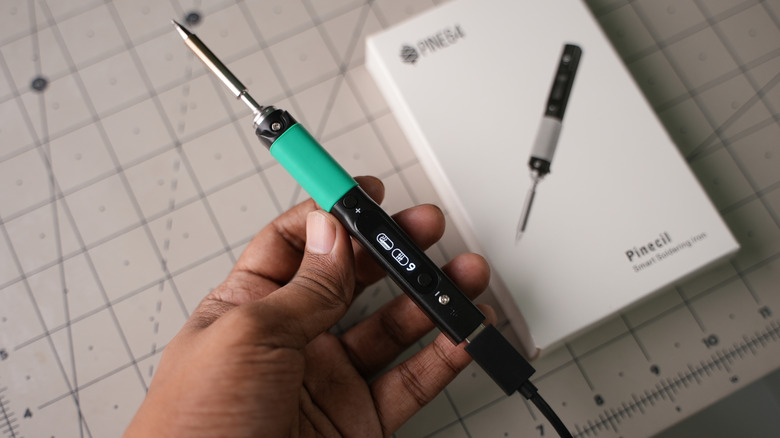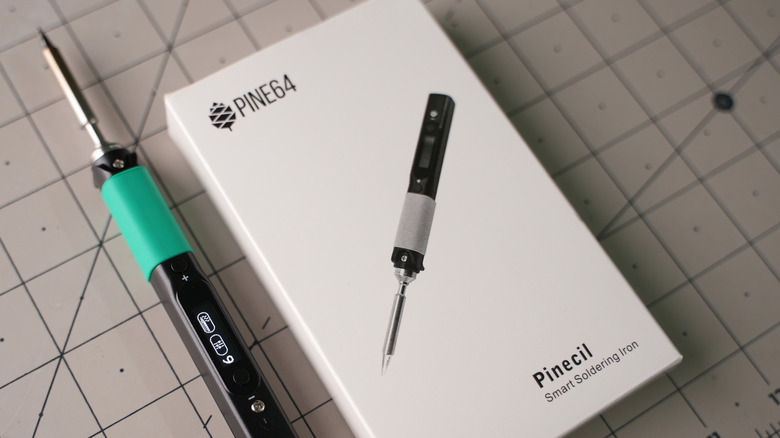Who Makes The Pinecil Smart Soldering Iron & How Much Does It Cost?
We live in an era where everything from lightbulbs to kettles is available in smart forms. Now, thanks to a company that's as innovative in its approach to business as its products are, we can add smart soldering irons to the list. Namely, the Pinecil smart soldering iron. This product has quickly become popular with electronics enthusiasts thanks to its affordability, open-source design, and, of course, functionality.
But just what makes the Pinecil smart soldering iron so special, and who is the company behind it? Like all good tales, it all began a long time ago. Well, about 10 years ago, to be more precise. In 2015, the then-named Pine Microsystems Inc. was formed and launched its first product: a crowd-funded single-board computer called the PINE A64. It was a product that targeted all the different Raspberry Pi models. The company changed its name to PINE64 in 2020. Since then, PINE64 has continued its community-based ethos and open-source policies across an ever-widening product range, including the Pinecil smart soldering iron.
What features are included in the Pinecil smart soldering iron?
The Pinecil smart soldering iron is an open-source device that boasts a host of smart features and functions. For those of us in a hurry, the first point of note is its super-quick ramp-up time. Switching it on until it gets to operating temperature is a mere 6 seconds. What sets it apart and what makes it smart is a host of clever features, some impressive hardware, and customizable open-source firmware.
At the heart of the system is a powerful 32-bit RISC-V SoC processor. This is the brains of the operation and enables such features as motion wake support, automatic sleep, and multiple power modes. It supports Power Delivery (PD), Quick Charge (QC), and Direct Current (DC) charging, making it highly adaptable to different power sources. Additionally, the Pinecil features a USB-C port for power and firmware updates, allowing users to tweak performance and expand functionality as needed.
Other notable hardware highlights include a 0.69-inch OLED screen, 192KB of internal flash memory, and 132KB of system memory. Importantly, for the electronic enthusiast, tips are easily swapped out. This adds another level of customization by allowing the Pinecil to tackle everything from precision work to Raspberry Pi projects that enhance your smart home. The Pinecil smart soldering iron is available from the Pine Store, where it has a community price of $25.99 against a usual retail price of $35.99.
PINE64, the company behind the Pinecil
One thing that differentiates PINE64 from most of its competitors is its continual insistence on community involvement. Initially formed in 2015 with a crowdfunded project that resulted in the PINE A64 single-board computer, PINE64 tends to act more like a community than a mere corporate entity. As noted on the company's community page, "PINE64 is a community-driven company focused on creating high-quality, low-cost ARM devices and, more recently, RISC-V devices for individuals and businesses around the globe."
PINE64 needs to be differentiated from the Pine Store Company that sells the products. The two companies, although closely linked, are separate entities. The upshot is that PINE64 is a company that not only welcomes community interaction but is structured in such a way as to encourage it.
While the Pinecil smart soldering iron is the star of PINE64's lineup, it's only one of a host of other community-focused products made by the company. Others include Chromebooks, smartwatches, IP cameras, single-board computers, and tablets, all of which come with the expected pros and cons of open-source software.


